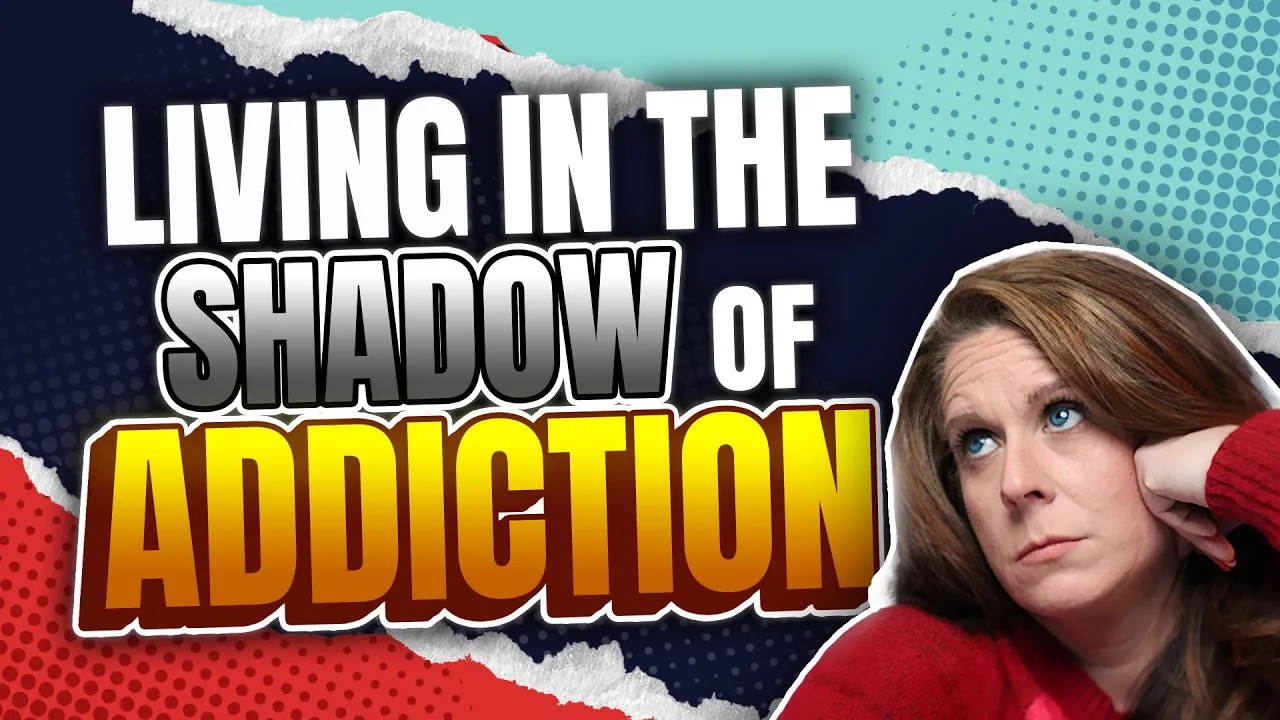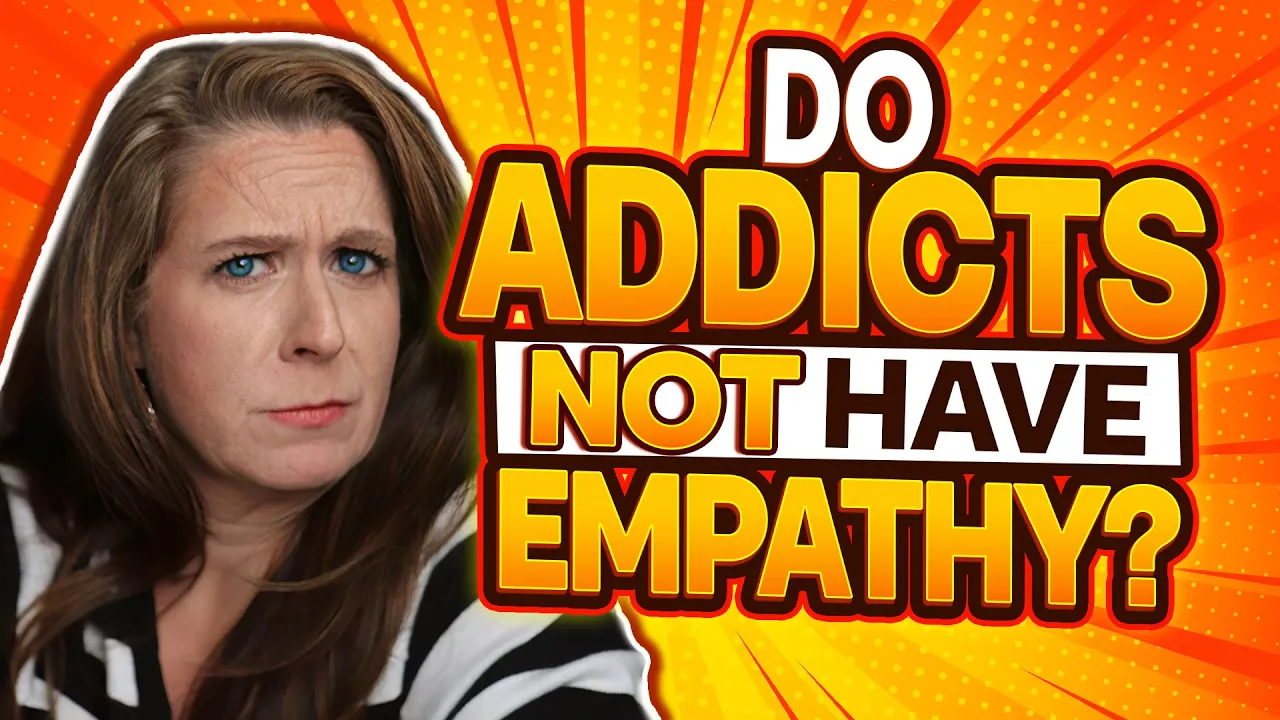What No One Tells You About Having an Addicted Sibling...
When Your Sibling is Addicted: A Different Kind of Heartbreak
Most discussions about addiction focus on the perspective of the person struggling or their immediate family—typically a parent or spouse. But today, we’re shifting the lens to an often-overlooked perspective: the sibling of an addicted person.
Having a brother or sister battling addiction is a completely different experience. Your response, emotions, and challenges are unique compared to those of a parent or spouse. Whether you grew up with an addicted sibling or their addiction emerged in adulthood, the impact on you is profound.
As a seasoned addiction counselor and someone who comes from a family with addiction, I understand this firsthand. I’ve avoided this topic for a long time because of its deeply personal nature, but today, we're diving in.
The Unique Challenges of Having an Addicted Sibling
Every sibling relationship is different, but addiction throws in additional layers of complexity. Your experience may be shaped by:
- Birth order – Was your sibling older or younger?
- Timing of addiction – Did they struggle while you were children, or did their addiction develop in adulthood?
- Family dynamics – How did your parents react, and how did that affect you?
Understanding these factors can help you make sense of your feelings and responses.
The Loss of a Bond You Once Had
If your sibling develops an addiction later in life, the emotional pain can be overwhelming. One of the hardest parts is feeling like you've lost a person you were once close to. It’s grief, but in a complicated way—because your sibling is still physically present, yet their behavior and personality may feel unrecognizable.
The Pressure of Over-Responsibility
If your sibling was addicted during childhood, you might have unconsciously taken on a hyper-responsible role in the family. This often happens when:
- Parents are overwhelmed, focusing all their energy on the addicted child.
- Family conflict increases, leaving you feeling like you need to be the “good” or “invisible” child.
- You learn to suppress your needs to avoid adding to the chaos.
This dynamic can follow you into adulthood, making you feel responsible for others in relationships, work, and family.
Guilt + Resentment = “Guilt-sentment”
A feeling I call guilt-sentiment is common among siblings of addicted individuals. You may feel:
✔ Resentment – You’re frustrated that so much attention is on your addicted sibling, that your parents may enable them, or that you're expected to "just understand."
✔ Guilt – Even though you’re angry, you also have deep empathy. You don’t want to be unsupportive, and you understand addiction is a disease.
✔ A mix of both – Feeling bad no matter what you do.
It’s emotionally exhausting, and for many, it carries over into adult relationships.
How Addiction Impacts Siblings in Adulthood
Even if you’ve moved out and built your own life, addiction has a way of keeping you tied to family dysfunction. You may experience:
- Continued over-functioning – You step in to help, fix, or manage situations, even at the expense of your well-being.
- Money issues – Your sibling may constantly ask for financial help, or your parents may drain their resources, leaving you feeling responsible for supporting them.
- Emotional manipulation – If your sibling is still actively using, they may guilt-trip you or use family ties to get what they want.
- Relationship struggles – Your learned patterns of over-functioning or codependency may affect your friendships and romantic relationships.
When Your Parents Enable Your Sibling
One of the most painful aspects for many siblings is watching their parents enable the addiction. This can make you feel even more resentful, helpless, and frustrated.
If your parents are still financially or emotionally invested in the addicted sibling, it can feel like their well-being is being sacrificed. But confronting them can be tricky because they’re dealing with their own pain too.
If your parents are no longer involved, you may feel like the burden has shifted onto you. You might think, “If I don’t help, who will?”—leading to guilt and exhaustion.
How to Set Healthy Boundaries as a Sibling
It’s okay to love your sibling and still set boundaries. In fact, it’s necessary for your mental health.
- Recognize that it’s not your responsibility to fix them. You didn’t cause the addiction, and you can’t cure it.
- Set firm financial boundaries. It’s not your job to fund their addiction or constantly rescue them.
- Give yourself permission to let go. You don’t have to answer every call or drop everything when they need something.
- Seek your own support. Therapy or support groups (like Al-Anon) can help you process your feelings and break free from unhealthy patterns.
What If Your Sibling Has Kids?
If your addicted sibling has children, the situation becomes even more complex. Now, you're not just worried about your sibling—you’re also concerned for their kids' well-being.
If possible, help in ways that directly support the children rather than enabling your sibling. That might mean helping with groceries or school supplies rather than giving cash. But remember: It’s not your job to parent their children either.
If You're a Parent with an Addicted Child and Other Kids
If you're a parent reading this, wondering how to support your other children, please know:
💡 Your non-addicted children need your attention too. Even if they seem "okay," they’re impacted.
💡 Let them express their emotions freely. Don’t force them to forgive or take a certain stance.
💡 Offer support, but don’t push therapy. Let them decide if they want counseling.
It’s Okay to Take Care of Yourself
Being the sibling of an addicted person is tough. The emotional rollercoaster of guilt, resentment, and responsibility can be overwhelming. But you deserve to have boundaries, protect your peace, and focus on your own well-being.
Amber Hollingsworth
Do Addicts Mean The Hurtful Things They Say?
ADDITIONAL RESOURCES:
🆓FREE Downloadable Resources: https://www.familyrecoveryacademy.online/free-resources
🙋🏻♀️FB group for family members: https://www.facebook.com/groups/familyrecoverysupport
📆Make An Appointment With One Of Our Specialists: https://www.familyrecoveryacademy.online/consultations
Get 10% off Virtual Counseling with our sponsor BetterHelp 👇🏻 https://betterhelp.com/PutTheShovelDown
💯Incredibly accurate personality tests that light up your life—at home, at work, and in relationships 👉🏻 https://www.truity.com/?a=5122460
📚Amazon Book Recommendations: https://www.amazon.com/shop/addictionrecoveryresources-hopeforfamilies


